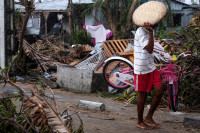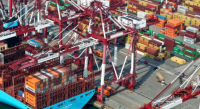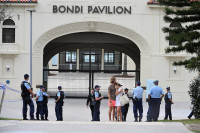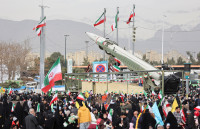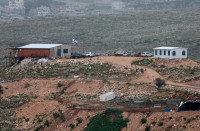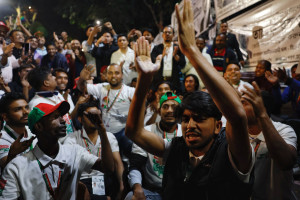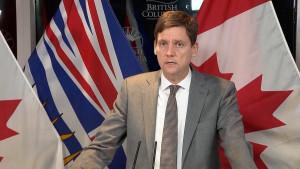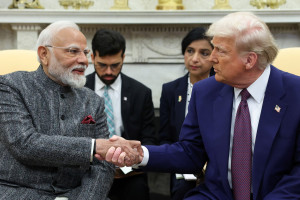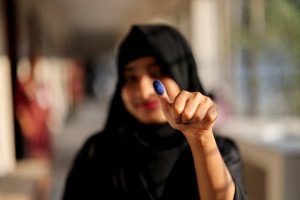World
Foggy road ahead in Myanmar crisis
China and the US are rapidly zeroing in on the Myanmar crisis, threatening to derail initiatives by ASEAN, particularly those of Indonesia and Thailand.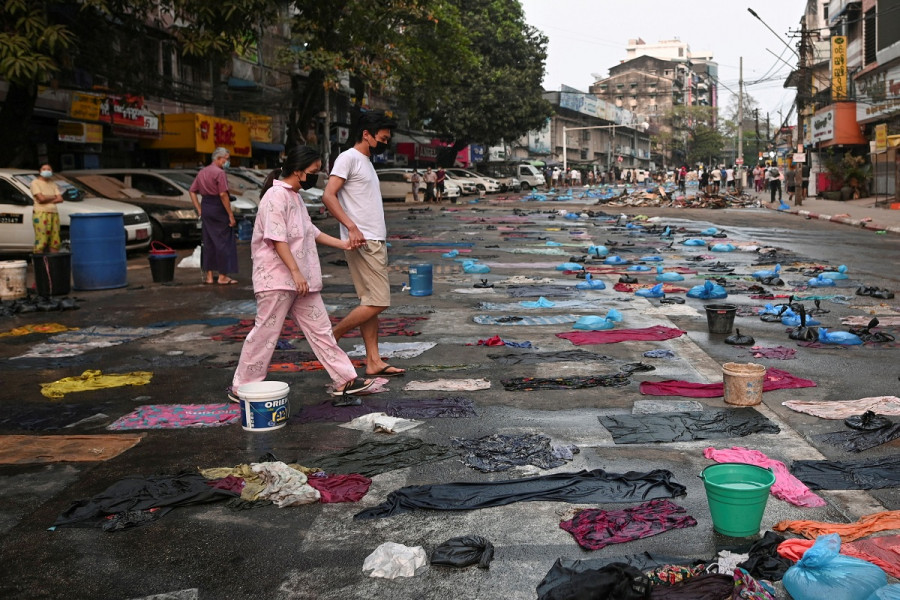
Asia News Network
Four events on Sunday (March 14) are proving pivotal to the outcome of the escalating crisis in Myanmar.
First, the acting leader of Myanmar’s ousted lawmakers under an entity called the Committee for Representing Pyidaungsu Hluttaw (CRPH), backed by the US, issued a call to arms for the protesters to defend themselves in a “revolution”.
Second, unidentified assailants set fire to scores of garment factories in an industrial zone – some of which were Chinese-owned. Both the protesters and the junta are blaming the other for the arson attacks. The incidents followed weeks of “hate” messages in social media over China’s opposition alongside Russia when the UN Security Council sought to condemn and impose sanctions on the Myanmar military junta over the February 1 coup.
Third, deaths of anti-junta protesters on Sunday hit a high of at least 39, bringing the total death toll to well over 100.
Fourth, the Tatmadaw, as the Myanmar military is known, has imposed martial law in two townships, one of which is in Yangon. More were underway yesterday.
The upsurge in violence comes as blow to ASEAN, which was hopeful of further engaging the Tatmadaw to convince it to open a dialogue with all stakeholders, including the National League for Democracy; and also to allow a humanitarian channel to aid the people as Myanmar already faces an uphill task controlling the Covid-19 pandemic.
Separate initiatives by Indonesia and Thailand, which managed to establish preliminary “trust” with the junta as evidenced by the visit of Myanmar Foreign Ministry representative Wunna Maung Lwin to Bangkok on February 24 to meet Thai Foreign Minister Don Pramudwinai and Indonesian Foreign Minister Retno Marsudi, now appear to be in tatters following Sunday’s call to arms and the consequent violence.
Greater involvement by superpowers and their taking sides in the conflict could further complicate matters.
The US had earlier initiated a series of sanctions on Myanmar military personnel and stopped the military junta from withdrawing Myanmar’s US$1 billion deposit in New York, as well as a World Bank loan freeze. The US has backed the CRPH, which is now seeking recognition as a government in exile. It is also trying to bring on board the ethnic minorities, including those who have been fighting for independence under a federal principle.
These signals are heightening the challenges for the Tatmadaw to hold the country together and avoid a potential civil war, a scenario which ASEAN, especially Thailand as well as China, is most wary of. Unlike the 1940s when the Tatmadaw began as the only institution in Myanmar able to build a nation state, now the NLD and its allies have a blanket presence in all parts of the country, although with few arms.
Meanwhile China, with its controversial economic relations with Myanmar plus complex activities along the borders, is poised for greater intervention following Sunday’s arson attacks on the properties of Chinese investors.
China had earlier signalled its intention to enter the fray. Foreign Minister Wang Yi was unequivocal in stating: “China and Myanmar are a community with a shared future through thick and thin. China will not waver in its commitment to advancing China-Myanmar relations, and will not change the course of promoting friendship and cooperation, no matter how the situation evolves.”
One Thai diplomat, who did not want to be named, expressed his apprehensions. “We are naturally worried because as the conflict intensifies, the reactions from major nations, especially western ones, will increase, with the consequent danger of everything getting irretrievably out of control. As we are seeing, moral support, financing etc to keep the protests going may lead to supply of arms and weapons. The entire environment can lead to this as well as external interference reaching various groups of people, including ethnic minorities to fight the military government, triggering chaos. So, what does this lead to — a problem for ASEAN, particularly Thailand [sharing long borders with Myanmar].”
“If we talk about patience, we don’t want to say if they [the US] have or don't have – but we would like them to have the same objectives and good aspirations for Myanmar. That’s what we would like to see,” he added.
Thai observers believe that co-existence of the Tatmadaw and the NLD is the best of the alternatives before Myanmar.
And there is nothing better than a return to normalcy. “It’s best for them to walk forward together, as it had proven throughout recent years that by sticking together, trying to depend on one another, or even with sporadic conflicts at times, it is the optimum option for their country,” Thai Foreign Minister Don Pramudwinai had said in an earlier interview with Asia News Network.
Don stressed the importance of dialogue and trust to achieve a peaceful resolution of the conflict in Myanmar.
Thais believe that if the two sides had tried to stay together and accommodated each other and not sought to annihilate the other, the crisis would not have taken place. And if they can nurture the relations as they did in the past several years, it would have created a “special” characteristic in themselves, and the role of the military would have then steadily evolved in tandem with domestic politics, benefiting the people in the process.
The failure at mutual accommodation had precipitated the present crisis, which is escalating by the day.
Amid threats of a civil war and martial law imposed on two townships on Sunday and more yesterday, the chance of the Tatmadaw imposing a nationwide martial law, blocking access to the internet and all communication with the outside world cannot be ruled out.
The Tatmadaw has woven tightly the fabric of the Myanmar nation for long and has become used to being in control of virtually every facet. The soldiers are industrious, serious, brutal, ruthless, and aloof, with distrust of everyone. It is as if the world changed little in the post-colonial time, and everybody is a virtual enemy.
But the world has changed from the time when the military held the country in a tight leash. The people of Myanmar strongly believe that life would be better for them with a democratically elected civilian government, and communication technology.
There is a fear in ASEAN that the crisis could spiral out of control and become complicated like in some other countries, such as foreign fighters intruding, or the use of drone bombs from outside. Even the Tatmadaw would not be in a position to tackle such a scenario.
A Thai diplomat added that Thailand had not talked to China, but if Beijing offered a solution that could work, it would be welcomed. And Bangkok is open to combining its approach with the Chinese and work together for mutual benefit.
But Thailand maintains that if trust and dialogue can be established without outside interference, it is best for Myanmar because it doesn’t have to share the “cake” with anyone.
While several ASEAN members have supported Indonesia’s initiative, they are sceptical of Thailand's approach. “Yes, trust is key, but Thailand is mistaken in thinking that its special relationship with Myanmar could protect the region,” one ASEAN diplomat commented.
Meanwhile, on the ground the military still has the upper hand. A Myanmar source said the Tatmadaw is determined to carry out its objectives, despite the strong and inspired protests. There has been no significant switching of sides by soldiers and police to annul the coup, which is seen as a key determination of the outcome as international pressure has not been effective at the moment.
Some Myanmar analysts believe the best hope right now is to have a free and fair election after a year or two. The key challenge will be how best to hold the military accountable for its promises including maintaining basic human rights, freedom of the press and freedom of information flow. And also to make sure that Myanmar does not become a pariah state so that its citizens can recover from the Covid pandemic. Policy engagements are needed from the international community rather than isolation.
But they conceded that the fate of the NLD is not good unless something can be salvaged. In addition to voter fraud charges, the military is now piling on corruption charges. It is widely surmised that Ang San Suu Kyi’s political career is likely over. Some blamed her stubbornness and political naivete for a series of actions leading to the coup.
The events of Sunday have stirred more uncertainty about the end-game, as the competing interests and geopolitics of China and the US further muddy waters.




 9.12°C Kathmandu
9.12°C Kathmandu
